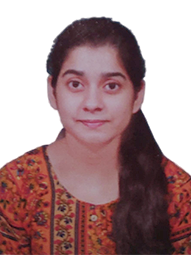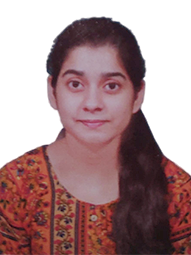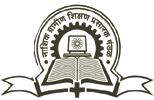
Designation: Lecturer
Qualification: M.A.English
Experience: 0 years
Specialization: Mangles
Mobile: 7822059075
Email-id: khushbusnwn@gmail.com
Office-Address: Bramha Valley College of Arts Commerce and Science.
About Department
NA
Vision
To foster academic
excellence and critical thinking by developing students. Literary sensibilities
and prepare students for global challenges by developing their communication
skills and creatively.
Mission
To develop communication skills critical thinking and creatively of students through intensive study of literature.
Objectives
Aims
-
Objectives
To develop
four communication skills of students.
To cultivate
critical thinking and creativity.
To faster appreciation of various works Heats of literature.
Staff Profile
| Sr. No. | Photographs | Name | Designation | Qualification | Resume |
|---|---|---|---|---|---|
| 1 |

|
Prof. Sonawane Khusbu Rajendra | HOD | M.A. English | View |
Courses Offered
| Sr. No. | Subject Code | Subject Name | Class | Sem |
|---|---|---|---|---|
| 1 | ENG- 101 T | English for beginners (theory) | FYBA | 1 |
| 2 | ENG-102 P | English for beginners (practical) | FYBA | 1 |
| 3 | ENG- 151 T | English for beginners (theory) | FYBA | 2 |
| 4 | ENG – 152 P | English for beginners (practical) | FYBA | 2 |
| 5 | AEC 151 ENG | Developing communicative competence in English (theory) | FYBA | 2 |
| 6 | ENG – 201MJ | Appreciating Poetry (4T) | SYBA | 3 |
| 7 | ENG- 202MJ | Appreciating Poetry (2T) | SYBA | 3 |
| 8 | VSC221 ENG | Introduction to English language phonology & morphology (2T) | SYBA | 3 |
| 9 | VSC271 ENG | Introduction to English language phonology & morphology (2P) | SYBA | 4 |
| 10 | ENG- 251MJ | Appreciating drama (4T) | SYBA | 4 |
| 11 | ENG- 252 MJP | Appreciating drama (2P) | SYBA | 4 |
| 12 | FP231 ENG | Field project | SYBA | 4 |
| 13 | ENG241 MN | English for competitive examination (2T) | SYBA | 4 |
| 14 | 35001 | Compulsory English | TYBA | 5 |
| 15 | 35331 | DSE 1C appreciation novel | TYBA | 6 |
| 16 | 35332 | DSE2C introduction to literary criticism (S4) | TYBA | 6 |
| 17 | 35334 | DSE2C Mastering life skills & life values | TYBA | 6 |
| 18 | 36001 | DSE 1C Compulsory English | TYBA | 6 |
| 19 | 36331 | DSE 1C appreciation novel | TYBA | 6 |
| 20 | 36332 | DSE2C introduction to literary criticism (S4) | TYBA | 6 |
| 21 | 36334 | DSE2C Mastering life skills & life value | TYBA | 6 |
| 22 | AEC 101 | Mastering English for Professional Purposes | F.Y.BCOM | 1 |
| 23 | AEC 121 | Mastering English for Professional Purposes | F.Y.BCOM | 2 |
| 24 | AEC 101 | Horizons: English in Multivalent contexts | FYBSc | 1 |
| 25 | AEC 151 | Horizons: English in Multivalent contexts | FYBSc | 2 |
Total Intake
| Sr. No. | Name | Duration | Total BA Intake |
|---|---|---|---|
| 1 | F.Y. | First Year | 240 |
| 2 | S.Y | Second Year | 240 |
| 3 | T.Y. | Third Year | 240 |
Course / Program Outcomes (CO/PO/PSO)
- Students learn the basics of English language.
- Students become confident and proficient in the use of English in real life situations.
- Students realize the beauties of literature as linguistic construction and learn life lessons and values.
- Students acquire necessary skills that make them competent and employable.
- Students learn the significance of human values.
- CO 1: Gain a deep understanding of the artistic and literary qualities of poetry and drama, fostering a lifelong appreciation for these forms.
- CO 2: Critically analyse poetic and dramatic texts, identifying themes, literary techniques, and stylistic elements with depth and clarity.
- CO 3: Examine the evolution of poetry and drama across different time periods and cultures, recognizing their role in shaping and reflecting societal values.
- CO 4: Understand the significance of theatrical performance in drama and oral traditions in poetry, recognizing their impact on meaning and audience engagement.
- CO 5: Acquire essential creative and analytical skills that will support further academic research, literary critique, and artistic endeavours in poetry and drama.
- To get the awareness of career opportunities available to them.
- To identify the career opportunities suitable to them.
- To understand the use of English in different careers.
- To develop competence in using English for the career of their choice.
- To enhance skills required for their placement.
- To use English effectively in the career of their choice.
- To exercise verbal as well as nonverbal communication effectively for their career.

